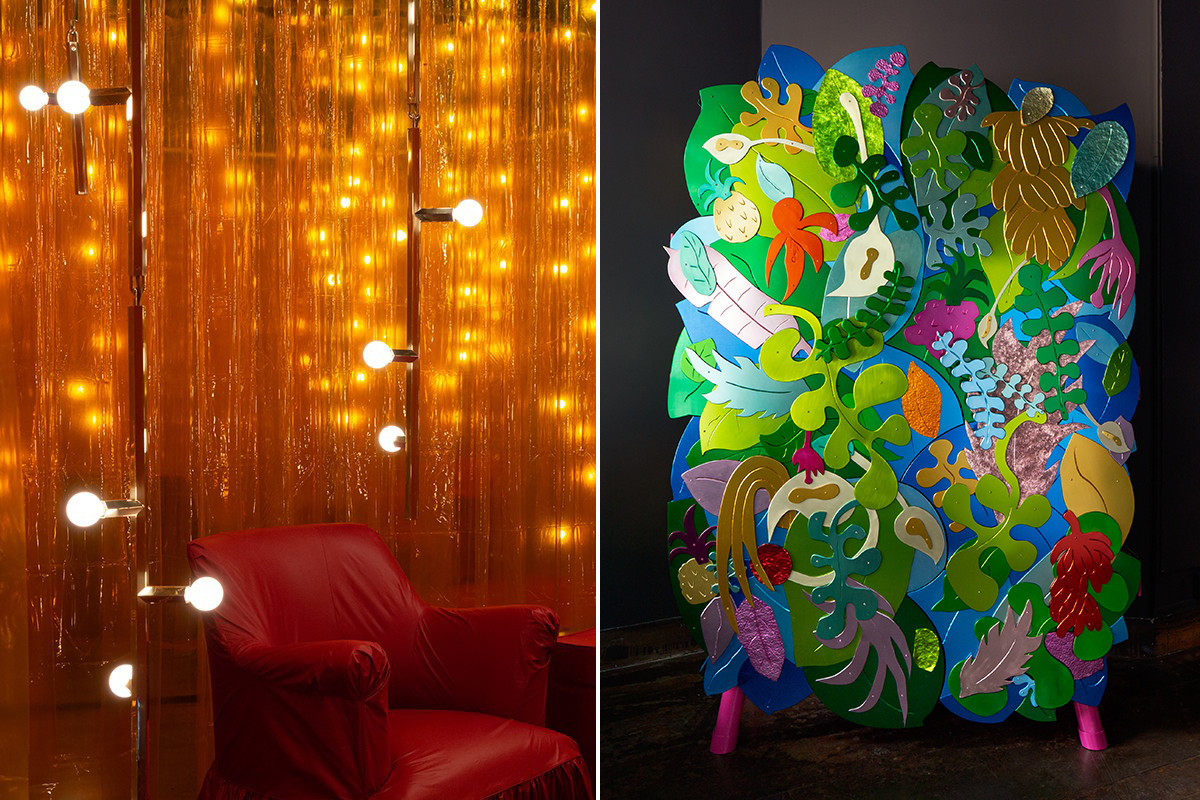
New York Design Week 2018: Charles de Lisle and Chris Wolston
For New York’s design week, The Future Perfect’s Manhattan gallery space was transformed as an exuberant showcase for the new work of Colombia based artisan and furniture maker Chris Wolston and the debut of an extensive new lighting series by Charles de Lisle, produced exclusively by The Future Perfect.
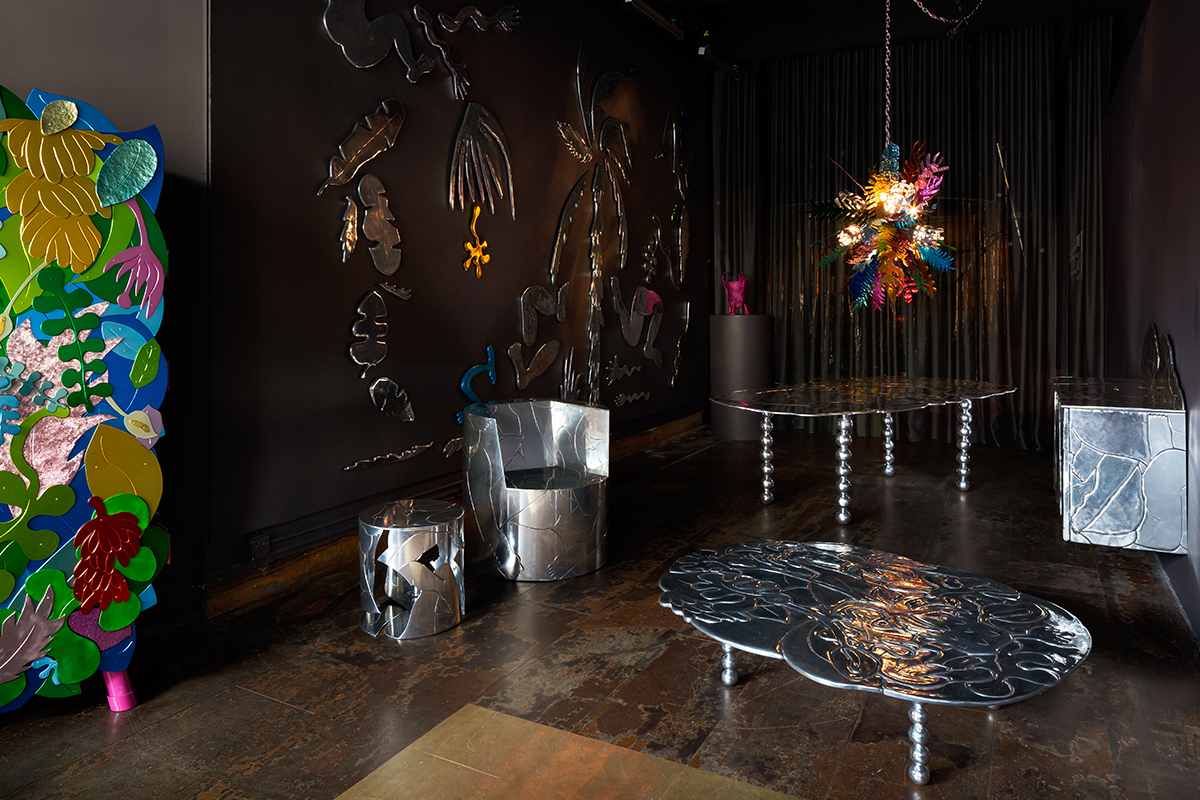
Wolston’s collection for The Future Perfect - appropriately titled Lost in Paradise - represents an evolution of the designer’s singular creative voice. Somehow balancing rigorous production with a whimsical ethos, Wolston presented aluminum furniture pieces that evinced his interest in both the ancient world and postmodern fabrication. Using widely hued sand-cased aluminum, new pieces bring us into Wolston’s vibrant technicolor world.
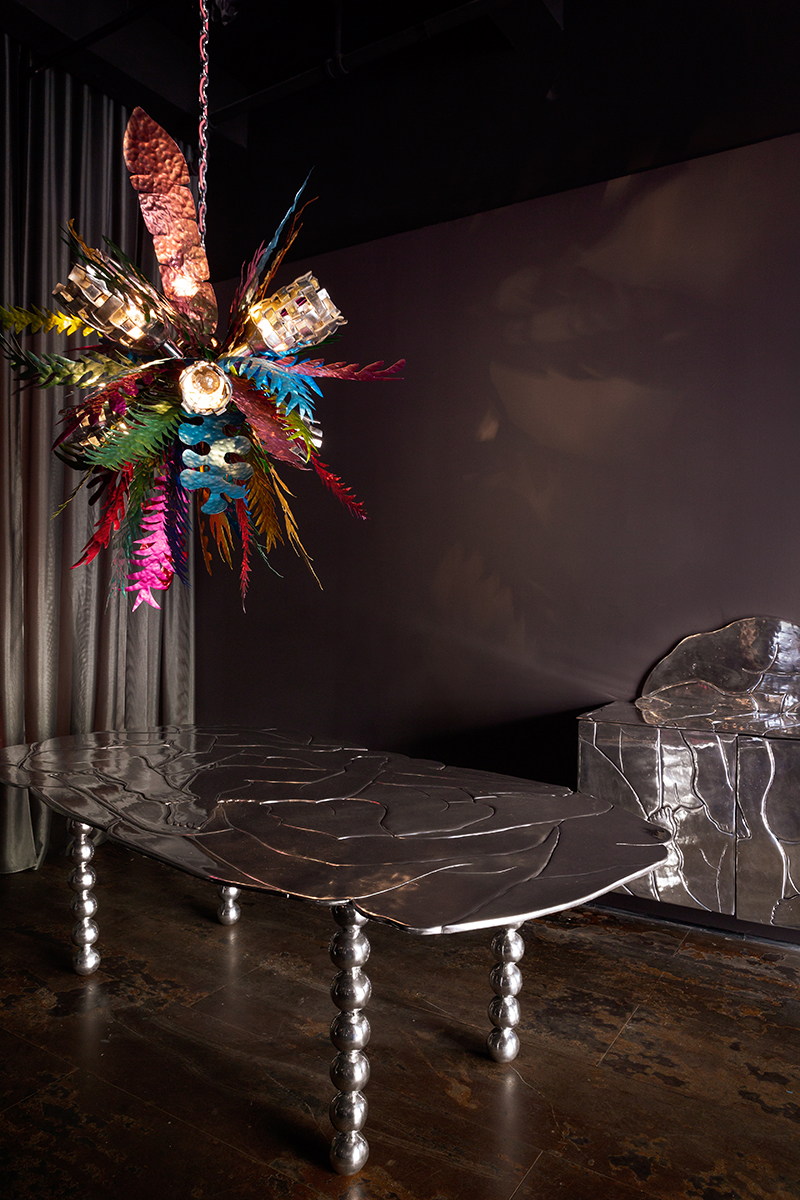
Tropical Chandelier and Body Dining Table by Chris Wolston.
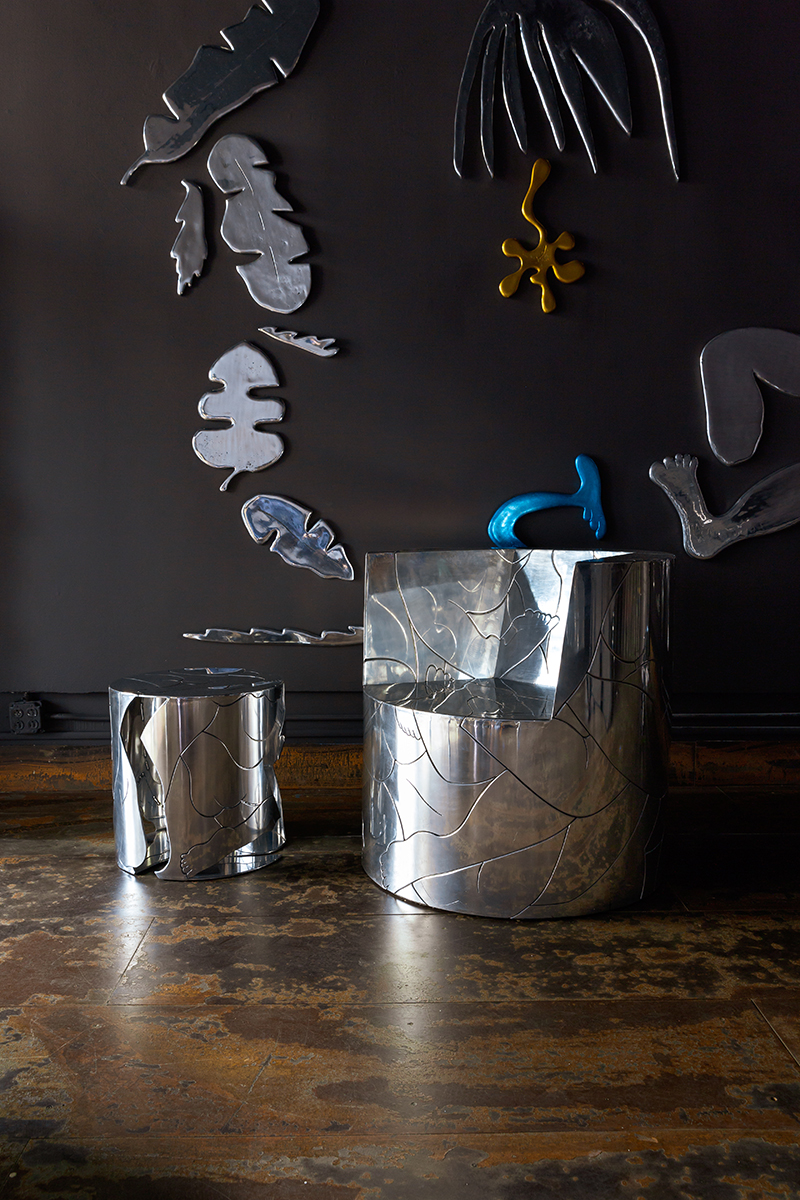
Body Chair and Side Table.
“I think of all my work as relational sculpture,” explains Wolston. “I like the combination of taking a low tech simple process and transforming it to make a complex kind of work. The discovery is in way of complicating it to come up against challenges and solve those challenges.”
Inspired by vibrant South American streetscapes, Wolston has added a color anodization technique for the first time, which gives his jungle and body shapes a bold luminescence. The exhibition will also feature the artist’s celebrated Body series, featuring surfaces of interwoven legs and body parts.
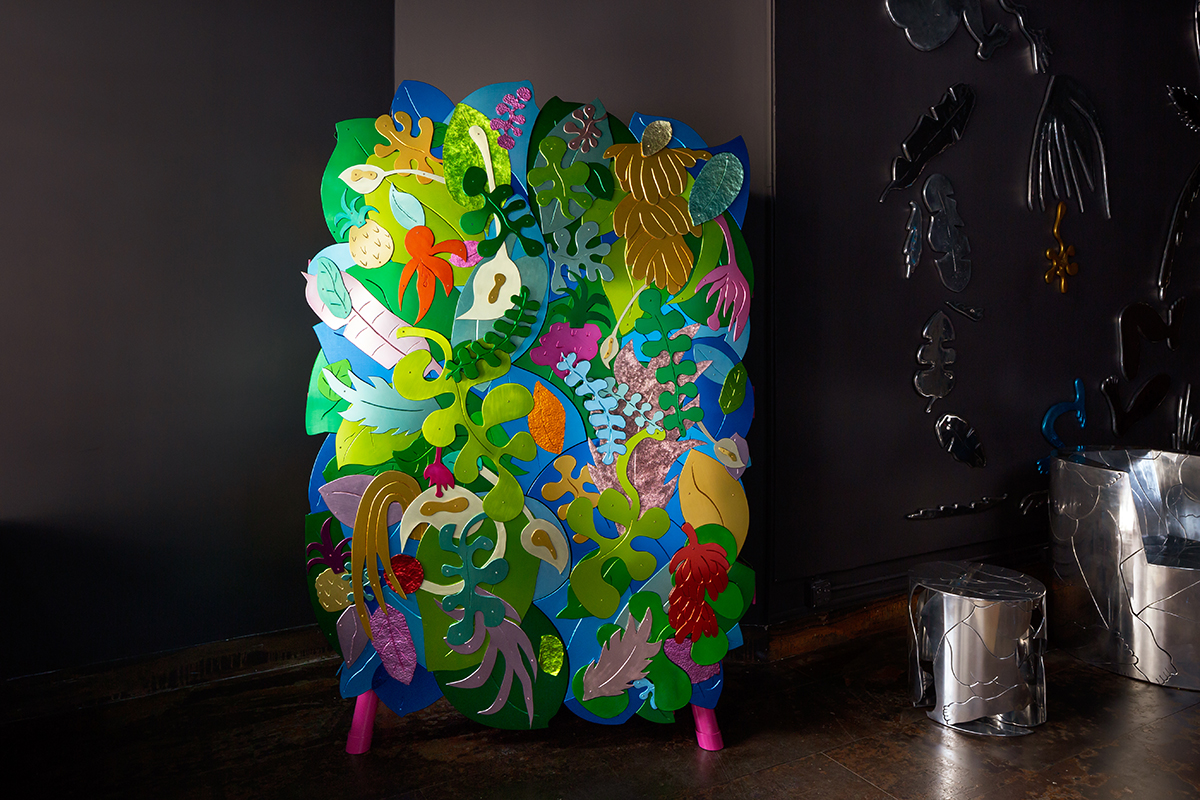
Chris Wolston's Tropical Cabinet
Wolston’s enlivening new pieces, which draw on his interest in ancient influences and postmodern fabrication, represent a tactile and compelling design statement, that clearly owe a debt to his time spent working with artisans in Medellin, Colombia. The 2018 range includes a new cabinet, armchair, dining table, lighting and wall installation.
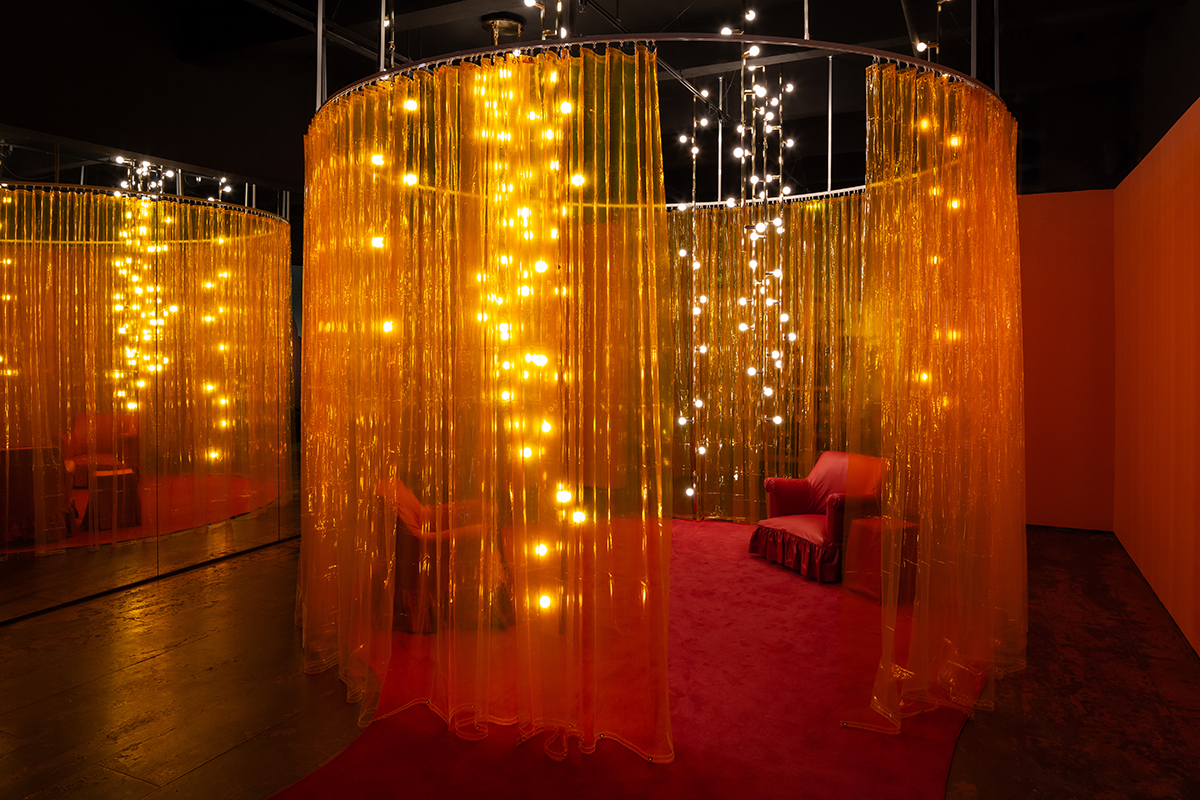
New York Design Week installation for Charles de Lisle.
Also unveiled for the first time, is Linden, an exciting new modular lighting series created by California-based designer Charles de Lisle in conjunction with The Future Perfect. The designer - who has worked across interior and product design - presents an object lesson in elegant simplicity with a lighting series that can be configured in countless ways.
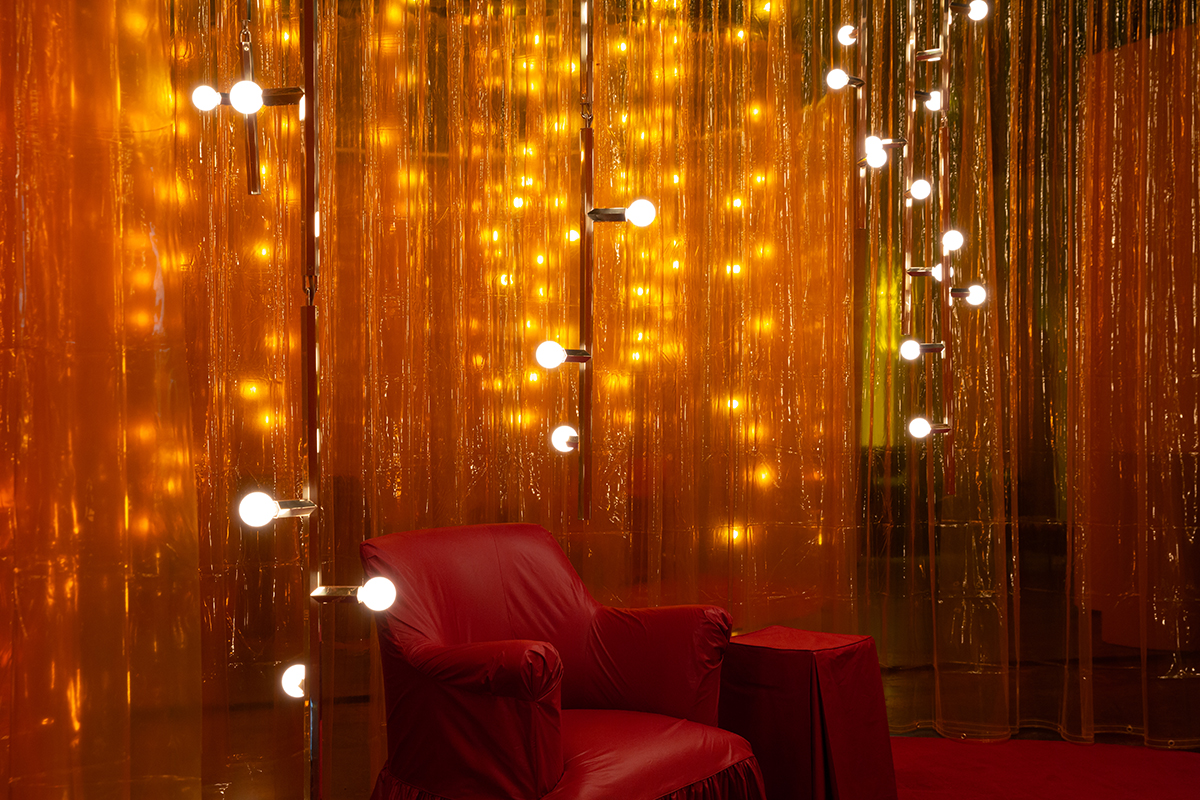
Linden installation at the New York gallery.
Endlessly versatile, the lighting series - which Lisle based on simple geometric shapes often inspired by bicycle construction - centers around a hexagonal brass conduit (which recalls early computer game graphic trees) as its central building block, allowing for twisted leafless forms to create myriad shapes. For the collection’s debut, de Lisle accentuates its simplicity atop a theatrical monochromatic stage; a shadowed backdrop of deep red slipcovered furniture and carpet calling to memory a deserted San Francisco Victorian home. Clusters of the highly customizable, cascading Linden Ivy fixture glow within an industrial amber curtain, while wicker and polished brass table lamps cast twinkling patterns along the gallery’s terracotta walls.
The series includes hanging fixtures, table and floor lamps and sconces. Taken together, Linden offers a virtually unlimited range of fixtures and arrangements.
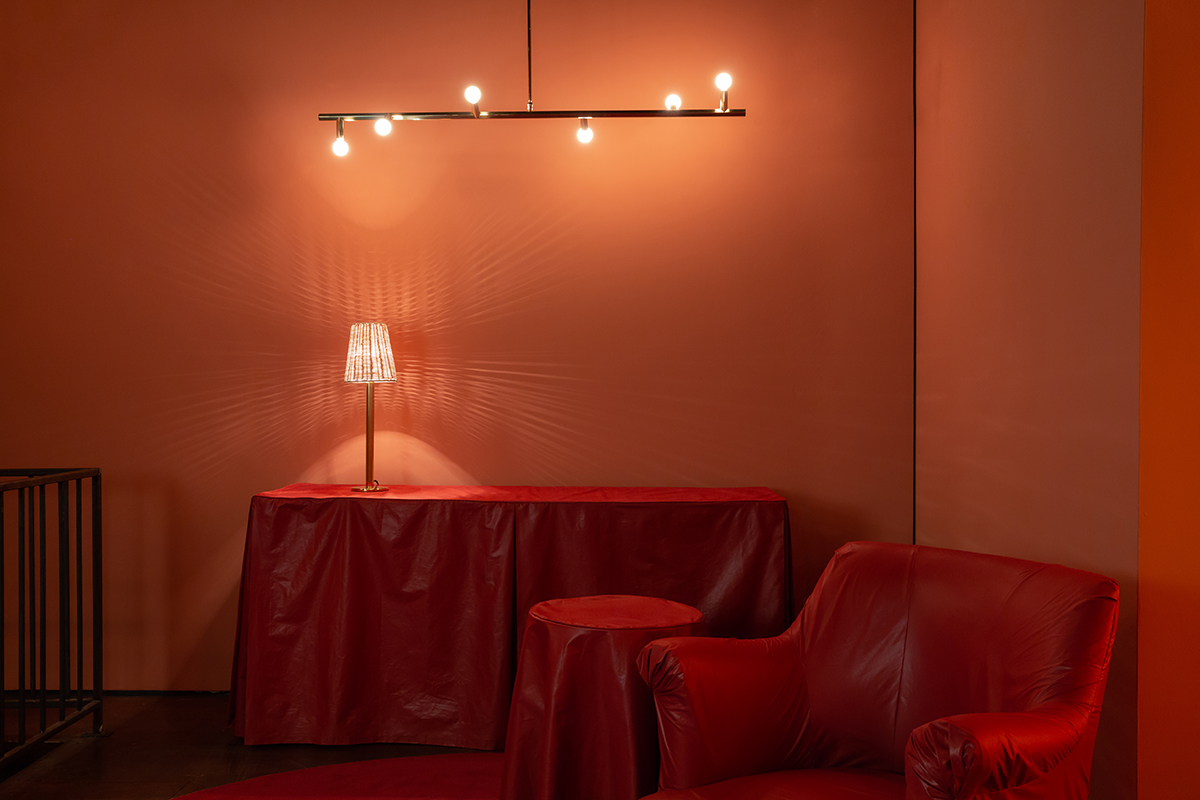
Photography by Brian W. Ferry.
 The Future Perfect
The Future Perfect